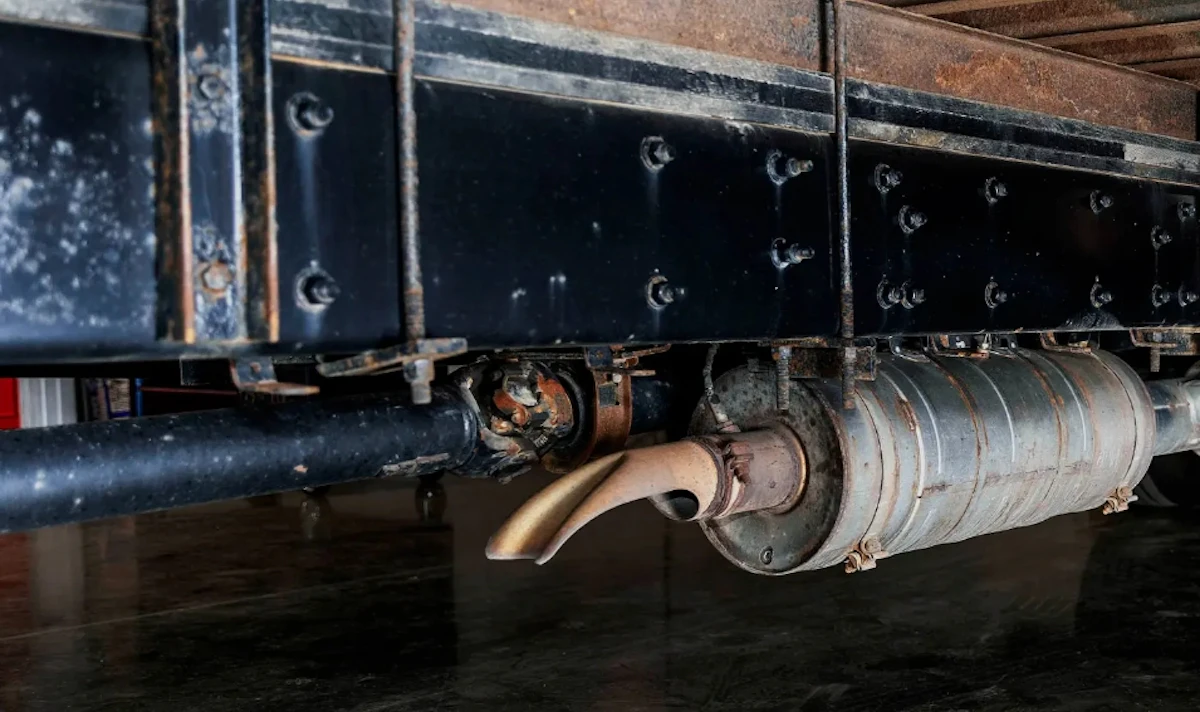DPF 101: The Complete Guide to Diesel Particulate Filter Care
Diesel Particulate Filters (DPFs) are a vital part of modern diesel engines, designed to keep emissions low and performance high. But without proper care, they can quickly become a source of costly repairs and downtime.
Quiet, overlooked, and buried in the exhaust system, the DPF plays a critical role in keeping your engine compliant, clean, and road legal. When it fails, everything, from performance and fuel economy to uptime and emissions compliance, goes off the rails.
At Atlas Truck Repair in Austin, TX, we’ve seen just how costly neglecting DPF maintenance can be. That’s why we’re laying it all out in plain English: what your DPF does, how it works, and how to care for it like a pro.
What Is a DPF and What Does It Do?
Let’s start with the basics. A Diesel Particulate Filter is a component of your truck’s aftertreatment system, installed in the exhaust line. Its main job? Capture and trap diesel soot, those microscopic carbon particles created during combustion, before they escape into the air.
Think of the DPF as a high-efficiency filter made of ceramic or silicon carbide material, structured like a honeycomb. As exhaust flows through, soot particles are captured in the walls of the filter. Over time, these particles accumulate and need to be burned off in a process called regeneration.
Without a properly functioning DPF, your truck risks heavy fines, check engine lights, and derated power output—not to mention a hefty bill at the service bay.
The Regeneration Process Explained
Your DPF doesn’t clean itself with elbow grease—it uses heat. There are three types of regeneration:
- Passive Regeneration: Happens automatically during high-speed driving when exhaust temperatures are high enough to burn off soot.
- Active Regeneration: Triggered by the ECU when soot levels hit a threshold. The engine injects extra fuel to raise exhaust temps and ignite the soot.
- Forced Regeneration: A manual regen done by a technician using a scan tool when passive and active regens fail, often due to clogged filters or sensor issues.
If your truck’s regen light comes on and you ignore it, soot turns to ash, which doesn’t burn off and can only be removed through cleaning or replacement.
Signs Your DPF Needs Attention
Just like your turbo or brakes, the DPF will give you clues when something’s going sideways. Waiting too long to investigate these signs can lead to full filter blockage and expensive downtime.
Don’t ignore these symptoms—they’re the early warnings of a deeper issue:
- Decreased fuel efficiency
- Loss of engine power or derate mode
- Excessive regeneration cycles
- Illuminated DPF warning light or check engine light
- High exhaust backpressure or increased idle RPM
DPF Cleaning: What You Need to Know
Cleaning your DPF isn’t just good practice—it’s required maintenance. Over time, non-combustible ash builds up inside the filter and clogs the airflow. Once passive and active regens can’t clear the obstruction, you need a professional DPF cleaning.
At Atlas Truck Repair, we use:
- Thermal cleaning ovens to bake out carbon
- Pneumatic blasting to clear ash and residue
- Flow testing to verify airflow performance
DPF cleaning should typically be done every 200,000 to 250,000 miles, depending on the engine model and duty cycle. Fleets running in city traffic with frequent stops may require cleaning much sooner.
Common Causes of DPF Failure
A failing DPF is usually the result, not the root cause. Here are the biggest offenders:
- Leaking injectors are causing excess soot
- EGR system malfunctions are increasing carbon buildup
- Driving at low speeds too frequently (limits passive regen)
- Turbo issues resulting in oil entering the exhaust stream
- Skipped maintenance (like oil and filter changes)
In Austin’s heavy traffic, drivers often fall into the low-speed trap, never getting the high exhaust temps needed for proper regen. That’s where active regens and mobile diagnostics become critical.
Preventive Maintenance Tips for Long DPF Life
Want to avoid costly replacements? Here’s what we recommend for keeping your DPF in top shape:
- Stick to OEM-recommended engine oil and change intervals
- Use only ULSD (Ultra Low Sulfur Diesel) fuel
- Drive at highway speed for at least 30 minutes weekly (to trigger passive regen)
- Monitor and respond to regen indicators on your dashboard
- Schedule regular DPF inspections and flow tests
This small list of habits can save you thousands in repairs and keep your rig rolling without hiccups.
What Happens If You Ignore DPF Maintenance?
We’ve seen it all. And we’ve seen the cost. Drivers and fleet managers who ignore DPF maintenance may face:
- Engine derates or shutdowns
- Increased fuel consumption due to backpressure
- Cracked or melted DPFs from excessive heat
- Failed DOT inspections
- Regulatory fines and emissions non-compliance
- Repairs that cost 5–10x more than a cleaning
Bottom line: DPF neglect hurts your wallet and your uptime.
Your DPF Needs More Love Than You Think
A clean and healthy DPF keeps your truck running clean, efficient, and legal. It’s not just a filter, it’s a gatekeeper for performance and compliance. By understanding how regeneration works, paying attention to warning signs, and committing to regular cleanings, you’ll extend the life of your aftertreatment system and avoid the pain of unplanned downtime.
At Atlas Truck Repair in Austin, TX, we’re equipped with the tools, techs, and experience to keep your DPF performing at its best. Don’t let soot sideline your success—stay ahead of the game with smart, timely DPF care. For more information about aftertreatment systems, read our article about what happens when these systems fail and how to prevent it.
%20(1).webp)



.webp)
.webp)
.webp)
.webp)


